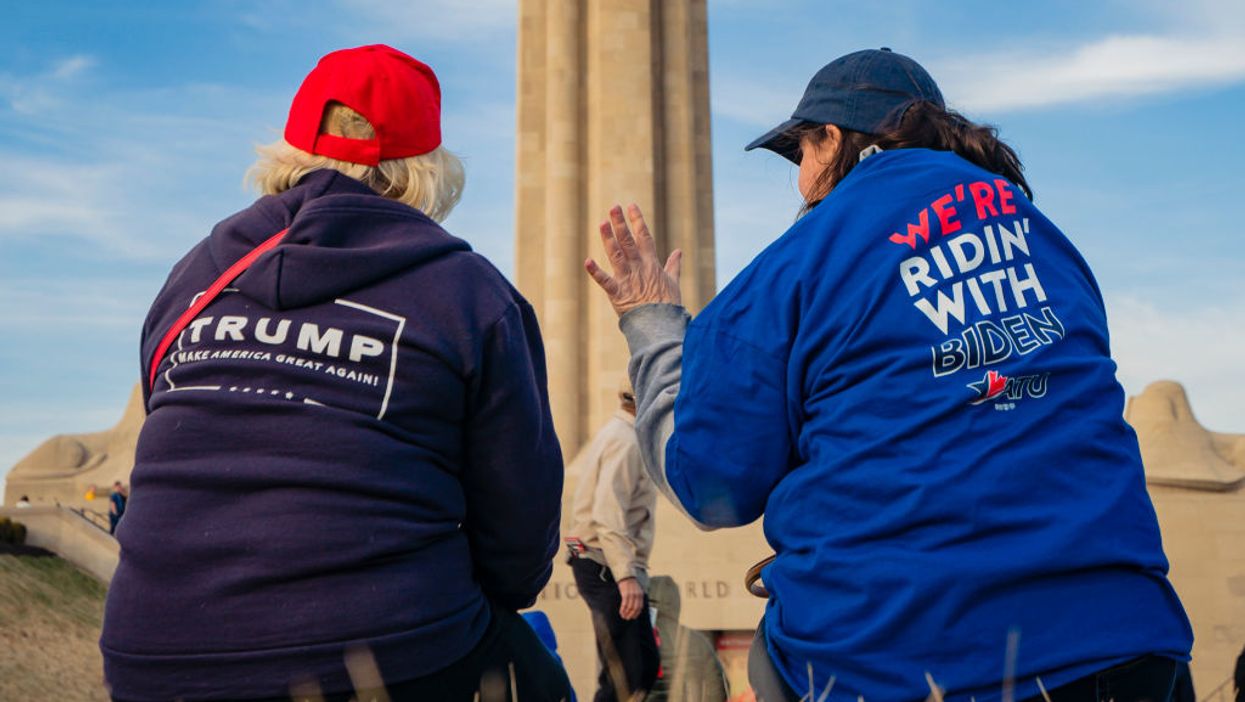The intensity of the presidential campaign appears to be creating a huge number of sore losers in waiting.
More than two out of every five supporters of President Donald Trump, and of former Vice President Joe Biden, say in a survey out Sunday that they will not accept the results of the coming election if their candidate is defeated. And decent numbers in both camps say they're prepared to protest a result they don't like.
The numbers from the new Reuters/Ipsos poll provide fresh evidence of the fragility of American electoral democracy, which has relied for more than two centuries on the losers deciding the election was fair enough to peacefully accept the outcome.
The survey pegged at 43 percent the share of Biden supporters who would not accept a Trump victory, with 22 percent of the Democratic nominee's backers saying they would engage in street demonstrations or even violence if he loses.
The president's camp was almost as impassioned: 41 percent said they would not accept a Biden win and 16 percent said they would protest if they're told the Republican has lost re-election.
The degree of distrust in the outcome raises the stakes anew for those cautioning patience in eight days. Definitive results from many of the Electoral College battlegrounds may not be known on election night if the contest remains as close in those states as polling suggests. That is not because the sort of cheating that Trump baselessly allegess is surely coming, but because of legally required delays in processing and tabulating the record numbers of ballots being returned by mail in response to the coronavirus pandemic.
Confusion and skepticism about delayed results is just one of the many challenges that have amplified concerns about the public's confidence in the result.
Russian attempts to hack into election systems during the 2016 campaign heightened concerns about the legitimacy of the 2020 vote long before the first ballots were cast. The pandemic then prompted most states to relax at least some rules for mail voting — which has prompted a steady diet of unsubstantiated claims by Trump that absentee ballot fraud will rob him of a second term.
During his campaign rally Sunday in New Hampshire, for example, Trump went on another long diatribe in which he claimed that mail-in ballots that had been requested by voters are OK — while those being proactively sent to voters are highly problematic. (Of the 10 states where that's happening, only Nevada is competitive in the presidential race.)
"The ballots get handled by many, many people by the time they even get there and it shouldn't be allowed," Trump said. "And the Democrats know it's a hoax and they know and it's going to cause problems."
Last week top national security officials warned that Russia and Iran had been attempting to hack into U.S. voting systems and looking for other ways to undermine confidence in the election.
Trump also has refused to commit to a peaceful transfer of power if the vote count shows him to be losing.
A poll released three weeks ago, by Politico and Morning Consult, found most voters do not expect to know who won the presidential contest on election night. Only a small majority in that survey thought the election would be fair, and three-fourths expressed concern about violent post-election protests.
The Reuters/Ipsos poll was of 2,649 adults the week ending Oct. 20 — including 1,039 who said they had voted for Trump or were planning to vote for him and 1,153 similarly behind Biden. The margin of error was 4 percentage points.




















